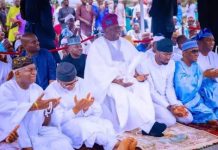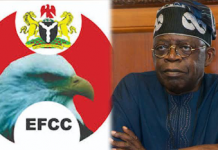
With Nigeria currently grappling with lower oil prices amidst fear over the coronavirus’s impact on the global economy, the nation’s inflation rate rose by 0.15 basis point year-on-year, the National Bureau of Statistics, NBS, has said.
According to the bureau in its Consumer Price Index (CPI) report for January 2020, consumer prices in Africa’s largest economy jumped to 12.13 percent in January, from 11.98 percent recorded in December, 2019, as food shortages caused by the border closures continued to boost the prices of staples.
IBrandTV ivestigation shows that, with inflation rising for the fifth straight month and hitting its highest level since April 2018, the Naira could be one of the first casualties.
A breakdown of this development shows that, In July 2019, month on month inflation rate stood at 11.08 percent from where it dropped to 11.02 percent in August and up to 11.24 percent in September.
A further rise was witnessed in October where it surged to 11.61 percent and 11.85 percent in November 2019. The upward trend continued in December as inflation rate rose to 11.98 percent and 12.13 percent in January.
According to the report, “On month-on-month basis, the headline index increased by 0.87 percent in January 2020, this is 0.02 percent rate higher than the rate recorded in December 2019 (0.85) percent.
“The percentage change in the average composite CPI for the twelve months period ending January 2020 over the average of the CPI for the previous twelve months period was 11.46 percent, showing 0.06 percent point from 11.40 percent recorded in December 2019.”
Meanwhile, there seems to be a serious concern as the growing threat of inflation building momentum amid the ongoing border closer may force the Central Bank of Nigeria (CBN) to deploy unconventional monetary policy tools to support the Nigerian economy.
Also, given how the International Monetary Fund (IMF) has revised its 2020 growth forecast for Nigeria to 2 percent, from the 2.5 percent predicted earlier the CBN may need to act fast.
A Senior Research Analyst at FXTM, Lukman Otunuga, stated that, “While rate cut could stimulate consumption, it may end up quickening inflation which is detrimental for the Nigerian economy. On the other hand, an interest rate hike could contain inflation but this will be at the expense of consumer spending and business investment.
“In January, the CBN left interest rates unchanged at 13.5 percent, however the cash reserve ratio was raised to 27.5 percent from 22.5 percent for the first time in four years in an effort to boost liquidity in the banking system. Will the CBN adopt a similar strategy when they meet in March? This is a question on the mind of many investors.”




